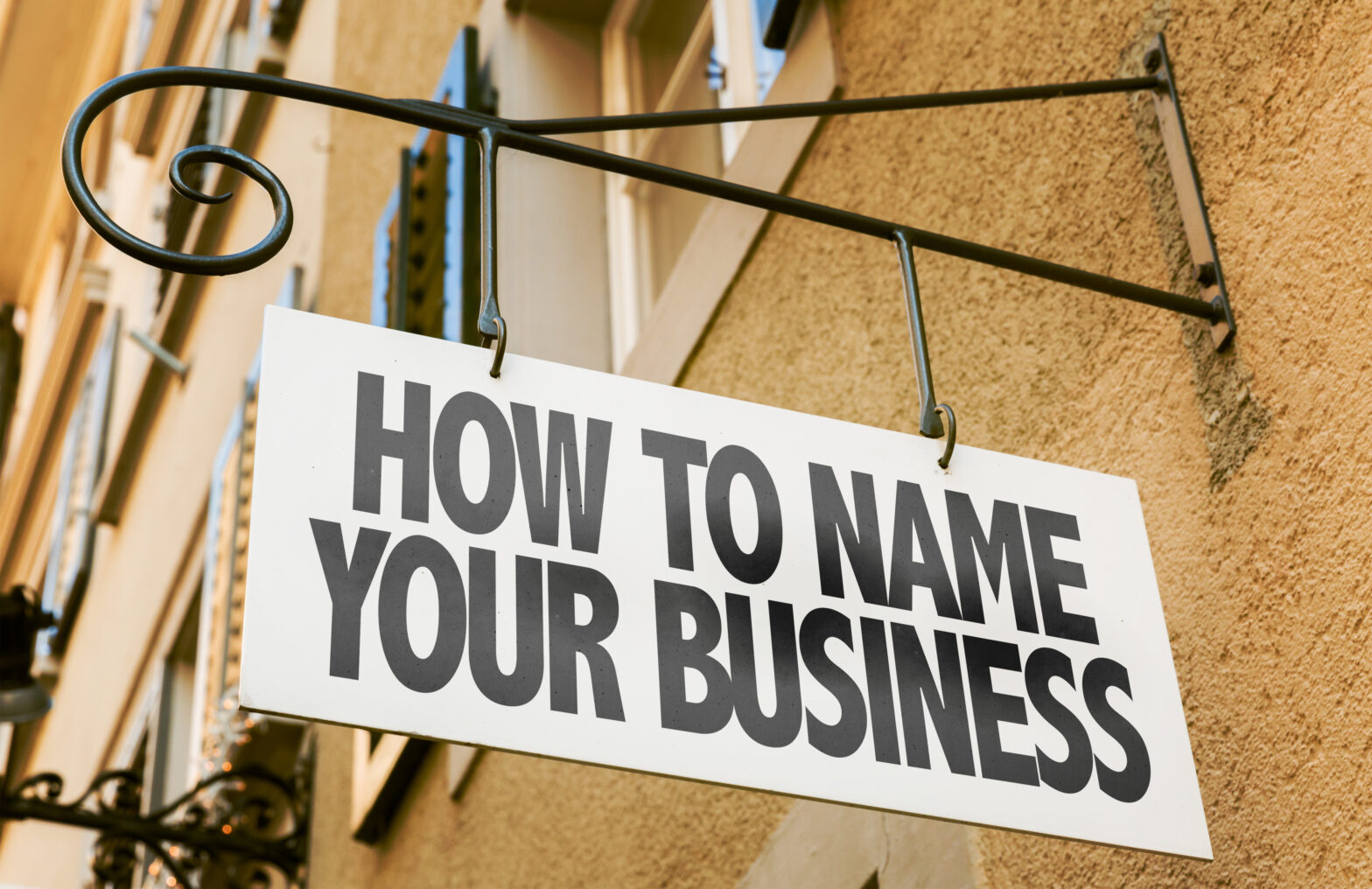Choosing a name for your business can be very difficult. We all intuitively know that getting the right name is important, but actually thinking up something we’re happy with is tough. You’ll be hard pressed to find a common English word that hasn’t already been trademarked by someone, but at the same time, you need your name to be memorable and accessible. So how do you find that perfect name?
The function of a name
Your name is more than just a label used to identify your business. It is nearly always the first thing that people hear in association with you, and it is how they will refer to it in the future.
With that in mind, your business’s name must:
- Be memorable and easy to write down or search for
- Create the right impression when people hear it.
If you want people to keep talking about your business and tell others about you, your name has to be memorable. If people read about you, but then can’t remember what to search to find you again, the chances are you’ve lost that customer. I’ll talk more about common naming mistakes at the end of the article, but it is of basic importance that your name should be memorable.
Think about what you would most like to tell potential customers about your brand. Are you innovative, high tech, or reliable? Are you cheap, fun, or exciting? These are qualities that you can communicate in a name through the sound and appearance of the words.
Case study: why you’ve never heard of StrawBerry phones
In 1998, RIM was working on a name for its new email device, that later became the name for the whole company. The process they went through to arrive at BlackBerry, now associated with the phones that sported full keyboards rather than a simple number pad, highlights both the key factors of a name mentioned above.
In order to compete better with other companies, RIM moved from bland, descriptive names like PocketLink to thinking more creatively. They looked at the keyboard, the device’s main selling point, and started to consider ways to represent it metaphorically. Because of the keyboard’s seed-like appearance, the names Strawberry and Blackberry were both written down.
Both were novel, fairly memorable ways of referring to a communications device, but Strawberry was marked as too slow. RIM wanted something faster and punchier, because their technology was ‘instantaneous’. Blackberry, with its explosive first sound and short first syllable, was preferred to the drawn-out sounding Strawberry. They also decided to capitalise on the ‘b’ sound, which linguists said was a universally distinctive sound, by capitalising both occurrences in the name.
This is a great example of a company thinking outside of the box, and coming up with a name that is easy to remember, and conveys exactly the kind of meaning that they want associated with their product.
The art of being original, yet memorable
With pretty much all common English words off the table for business names, the chances are that, unless you’re going to choose something purely descriptive (which is potentially limiting for you), or simply use your name, you’re going to need to be creative with language.
‘Neologism’ is the technical term for a made up word, and coining a good neologism is the way that many businesses will find their name.
One way to come up with a name that evokes the meanings you want is to take a morpheme – a linguistic unit halfway between a letter and a word, like tele- in telephone and television – and add another syllable or word to it.
A good example of this is Activision, the video game publisher. Their name is a neologism that starts with the morpheme ‘act-’ (as seen in action, activity, etc.). I don’t know the precise thought pattern behind the name, but to me the morpheme helps to convey a sense of excitement and motion that is consistent with a publisher that wants to be perceived as making exciting games.
Other ways to coin neologisms are alternate spellings and compound words. Vodafone uses an alternate spelling of ‘phone’ that not only makes its name more distinctive, but also shortens it. Meanwhile, high street optician Specsavers has combined ‘specs’ (short for ‘spectacles’) and ‘savers’ to create a unique and memorable name that reminds potential customers of their affordability.
Keep your customers at the forefront
When you’re thinking about names for your business, it’s easy to get caught up in what you like. But you’re not the one who needs convincing that your business is worthwhile. In the earlier example, BlackBerry didn’t just decide that they liked the name, they tested it alongside several other possible names before concluding that BlackBerry appealed the most to their audience.
When thinking of a company name, try to come up with a shortlist that you can pass round to people who are outside of the company, and listen to what they have to say, especially if their opinions differ from yours. It does you no good to have a company name that no one else likes or remembers.
Legal checks
Before you start running with your chosen name, make sure that there is no legal reason for you not to use it. Companies House has a name availability checker that is currently in Beta testing, and the Intellectual Property Office has a similar trademark search function. You don’t want to get everything ready for your new business, only to find yourself embroiled in a legal battle over names and trademarks.
Quick check: naming mistakes to avoid
To finish off this article, here are a few major mistakes that you would be wise to avoid as you set about finding your company name:
- Names that are too limiting: The problem with descriptive names is that they limit your potential for growth. A business called Bristol Model Trains is fine in theory, but if they ever want to take their business out of Bristol, or expand to other products, the name is going to work against them.
- Names that are too similar to others: For legal reasons and memory reasons, you should avoid names that are too similar to another, even if you think the similarity is fairly minor.
- Names with alternate meanings: If you have an eye on international markets, be wary of translation difficulties, or of randomly picking words from another language that sound good. ‘Lixo’ might sound like a snappy, short name for a tech company, but it means ‘garbage’ in Portuguese.
- Names that no one can pronounce or spell: If customers think a name should be spelled a certain way, listen to them. That’s why Google aren’t called Googol (the original plan for the name). And if your name is hard to pronounce from the start, or contains lots of numbers, it’s probably not worth it.
David Weiner is a business development manager at Company Address.





